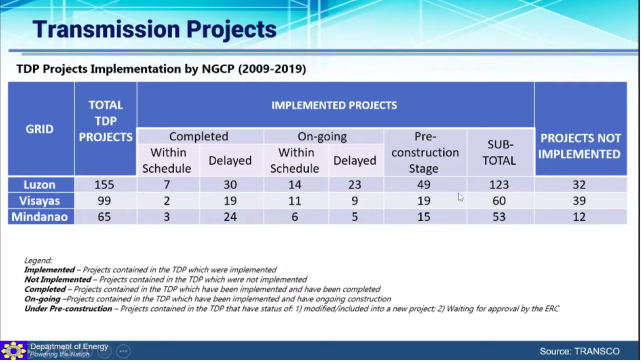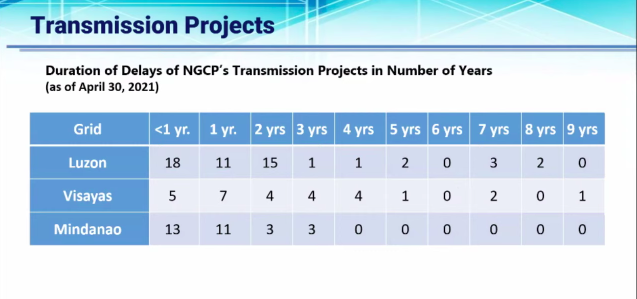DOE chief: Revert power grid ops to gov’t control
MANILA, Philippines — Energy Secretary Alfonso Cusi proposed Thursday that the government should take control again of the system operations of the country’s power grid from privately-owned National Grid Corporation of the Philippines (NGCP).
During the Senate energy committee hearing on the recent Luzon power outages, Cusi lamented the NGCP’s supposed failure to comply with its franchise requirement to secure “firm” contracts for energy reserves.
The lack of power reserves was among the factors the Department of Energy (DOE) had attributed to the recent rotational brownouts in Luzon.
“In my proposal, the system operation should be reverted back to the government. What are the duties of a system operator? To make sure that the grid stability is achieved, the dispatch and planning of power. So in a situation like this, if you are the system operator, you have to find ways for a solution and there are available solutions and the thing is, how come it’s not being done?” Cusi told the Senate panel.
“The DOE is the face of the industry. Sampal samaplin na po kami sa kasalanan ng iba,” he added.
He said the system control of the grid should be placed back under the government to ensure “proper management of ancillary services as well as national security, especially since NGCP is a private corporation with substantial foreign ownership.”
“Because of the monopoly…yun po ang problema. Kaya nga po sa proposal ko, ibalik natin sa gobyerno and system operation para sa ganun po mas maganda ang pagpaplano, maa-address natin and identified po yung responsibility,” Cusi added.
The NGCP is a consortium tasked to operate, maintain, and develop the country’s state-owned power grid. It was in 2009 when the NGCP took over the grid from state-run National Transmission Corp. (Transco).
Delayed transmission projects
Cusi likewise pointed to the delay in NGCP’s transmission projects. Providing transmission lines is an obligation of the NGCP under its franchise, the energy secretary told senators.

Department of Energy presentation during a hearing of the Senate energy committee on Thursday, June 10, 2021. Screengrabs from Senate Youtube livestream
“The transmission business is a monopoly and hindi po pwede yan na maging optional. Obligasyon po ‘yan. Kasama po yan sa concession contract,” Cusi said.
A presentation from the DOE showed that the duration of delays of NGCP’s transmission projects since 2009 ranged from one to nine years.
Give DOE some teeth
Aside from reverting the grid’s system control to the government, Cusi asked that Congress give the DOE authority to sanction erring industry players.
“The DOE has no authority to sanction. We establish policies and you can see that all the policies are in place, may mga programa tayo,” he said.
“Bigyan naman po sana ng ngipin ang DOE,” he added.
NGCP answers
For its part, the NGCP said it has been “constantly bullied” and blamed for the recent power interruptions.
“We were blamed for not contracting enough ancillary service as if it is the solution to the problem,” NGCP president Anthony Almeda said during the same hearing.
“Ancillary service contracting will not solve this supply problem. New plants will,” he added.
Furthermore, he said the NGCP “has 100 percent contracted a healthy mix of firm and non-firm ancillary service contracts.”
“We have been called out for not contracting 100 percent firm but should we allow this directive, there will be an astronomical spike in electricity prices for consumers,” he added.
